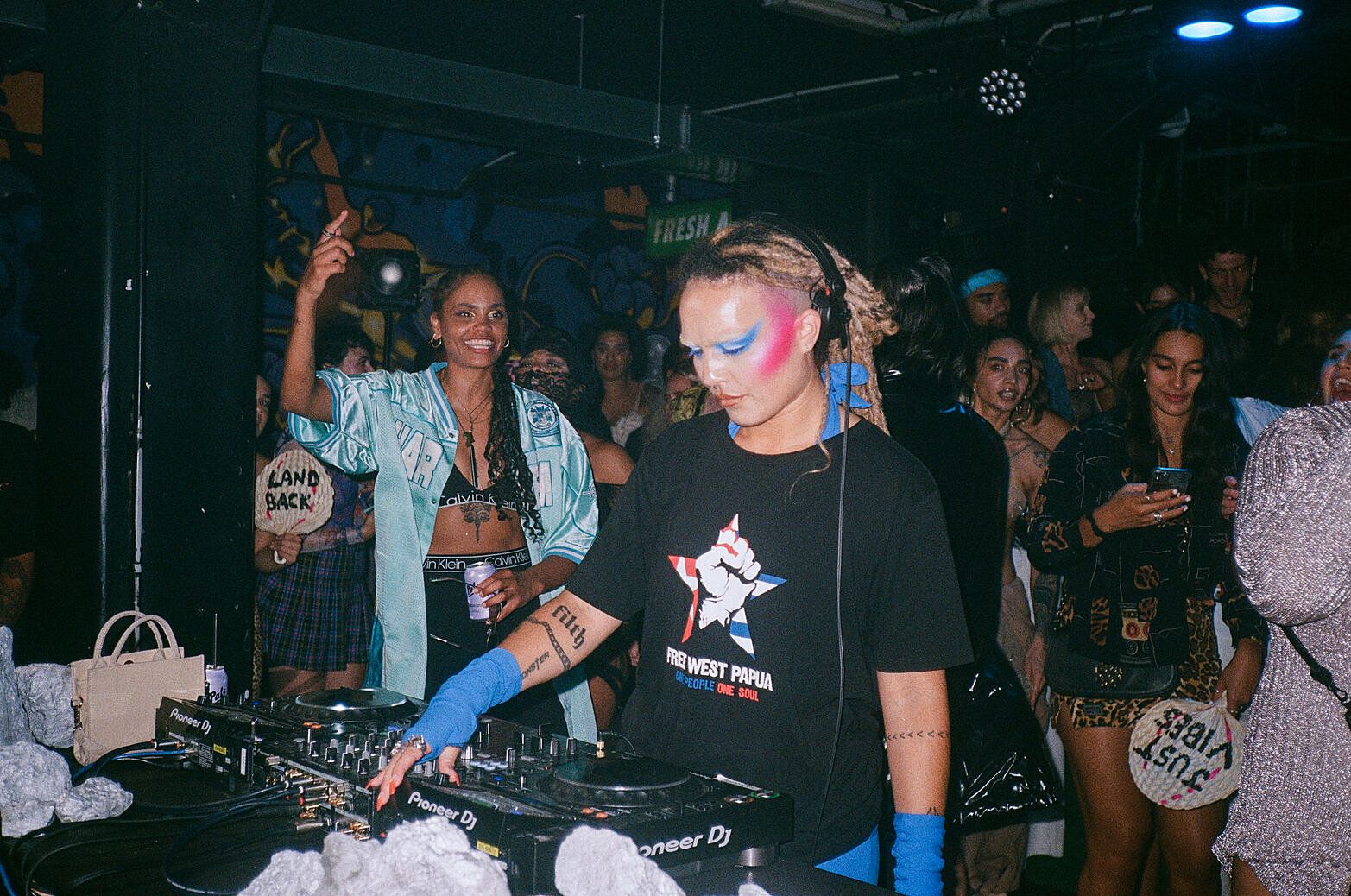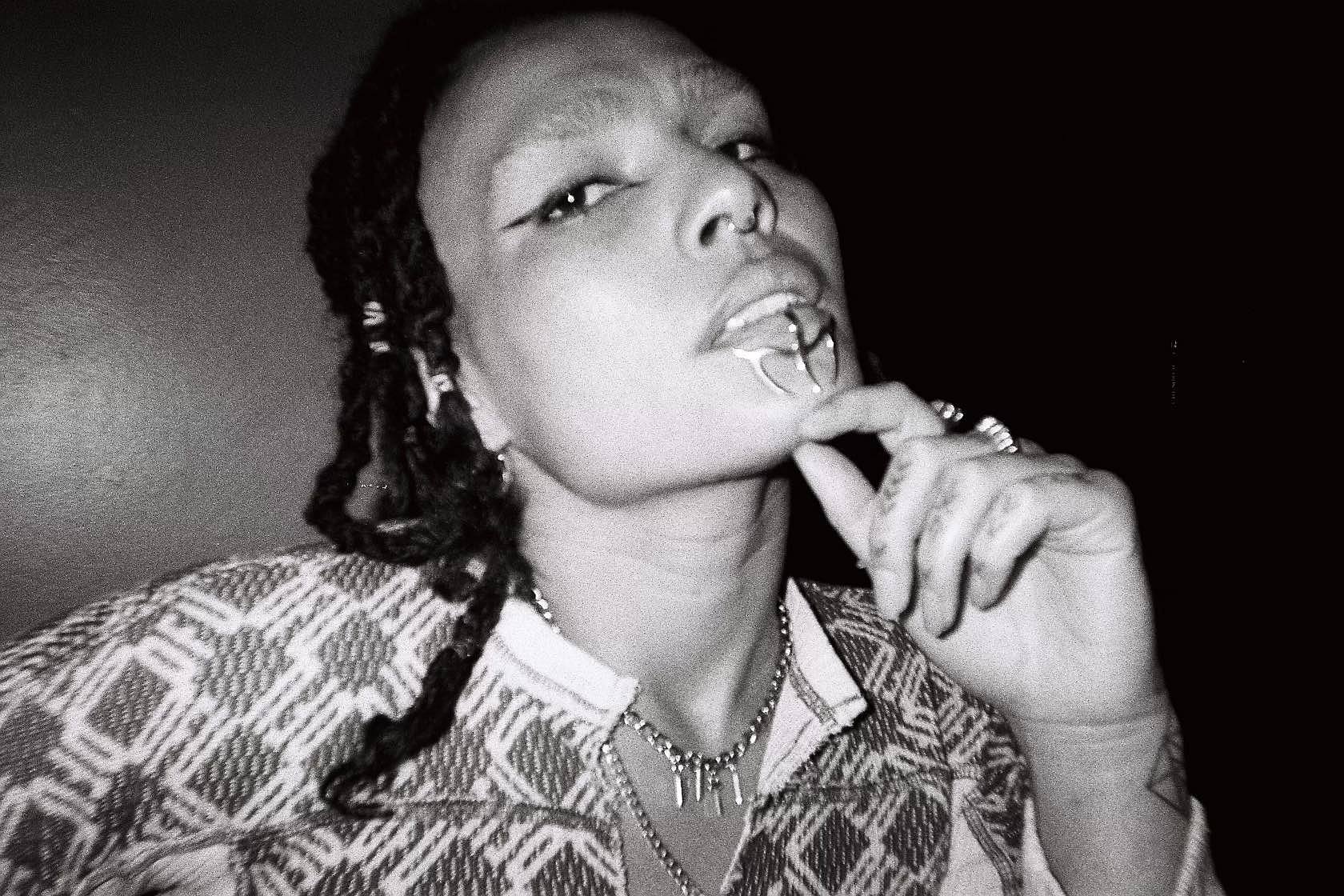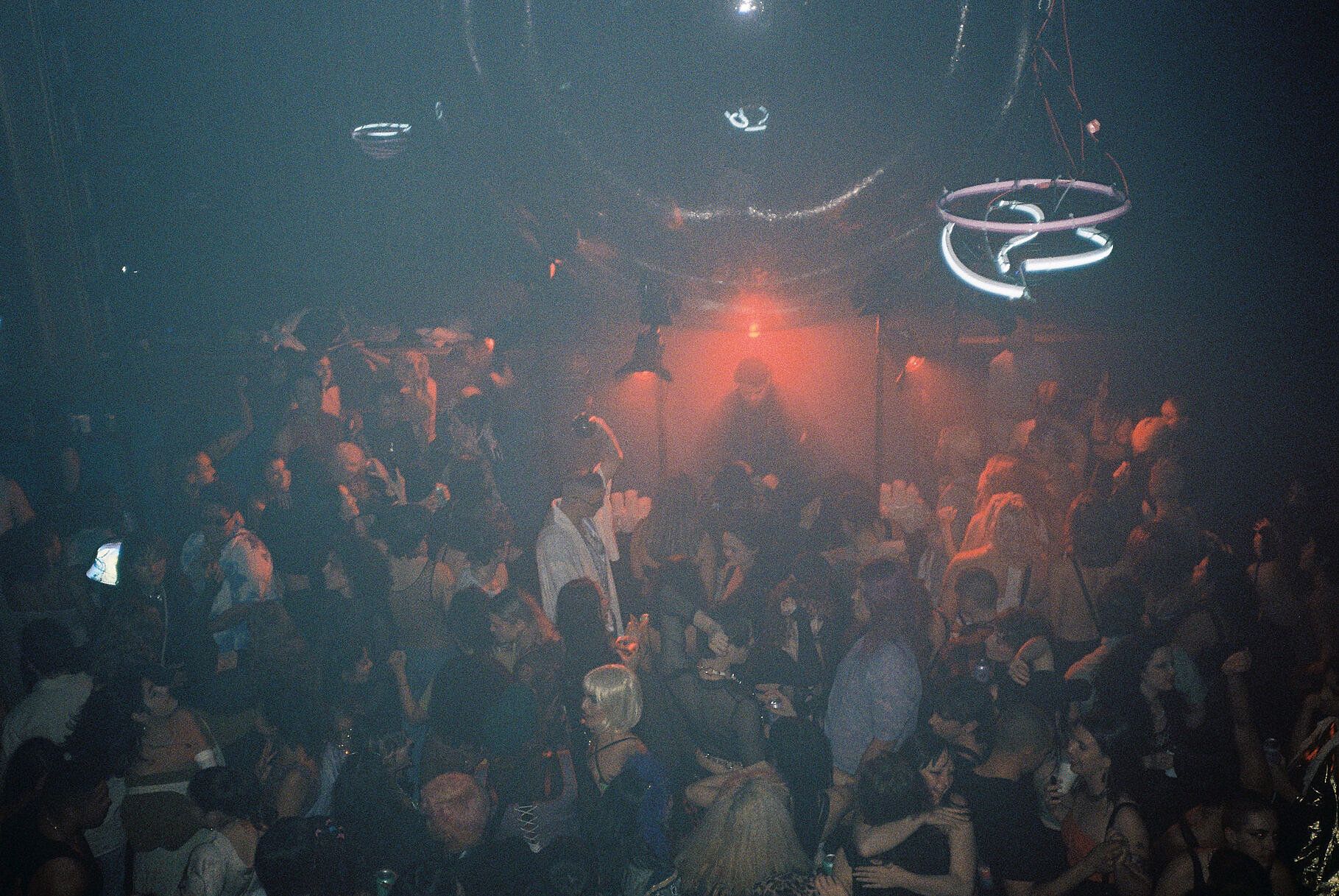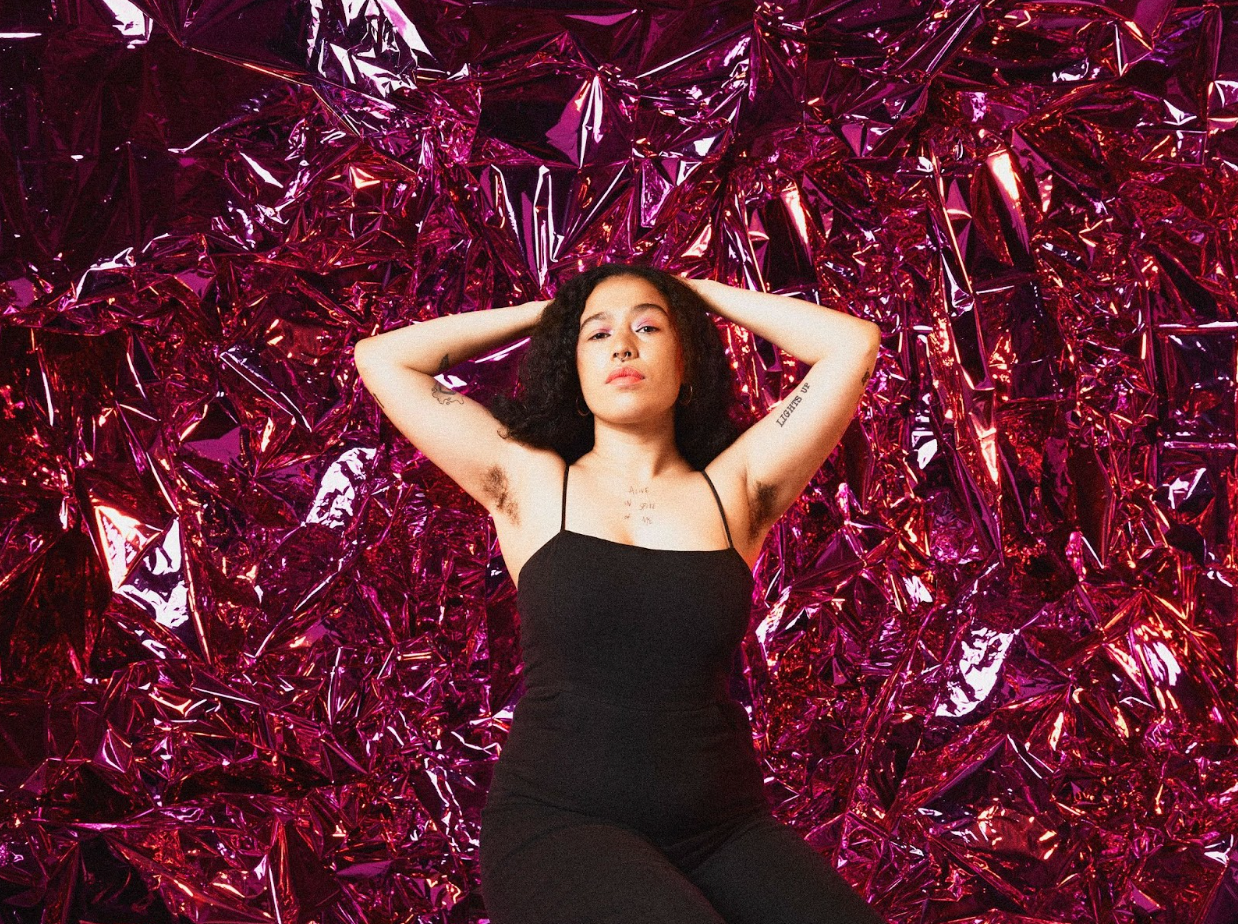FILTH Is for the Future Not the Ego
Shaquille Wasasala, one half of the mastermind duo behind FILTH, is shaping the landscape of club nights for Queer POC in Aotearoa and beyond. Their sister Kitty Wasasala sits down with them to discuss what sets FILTH apart, and where they’re headed next in their upcoming live event.
Shaquille Wasasala, aka halfqueen, is a DJ, director, event producer and artist. She’s also an Aries, a sore loser and my sister. Shaquille (she/they) naturally defies definition, but is undeniably a true creative force to be reckoned with, always on the move and ahead of the curve. When we catch up over Zoom, they’re touring Europe with best friend and headlining rapper JessB, her FILTH co-creator. I’ve called Shaquille to kōrero about FILTH and its new venture into live entertainment.
Shaquille and Filth co-creator JessB. Image credit: Synthia Bahati
Like my sister, FILTH is difficult to define. More than just a Queer party, no one-liner encapsulates its culture, the spellbinding magic of the space or the community it holds. The Instagram bio simply states “IT’S IN THE NAME.” According to the wisdom of Google, that name means “disgusting dirt” and, perhaps more appropriately, “corrupt behaviour; decadence”. Decadence in both the luxuriation and degradation of self. For me, FILTH is a rejection of self and our prevailing individualism. A meeting place for our intersecting communities – Queer, Trans, BIPOC – to embrace each other as one, see ourselves, dance, celebrate, mourn, shed skins together.
Like my sister, FILTH is difficult to define
Image credit: Timēna Apa
“Encapsulating the essence of FILTH probably comes better from people who go, and not me,” Shaquille offers. “It’s an event, of course, but it has turned into a bit of a movement now in Auckland that I can see rippling through the rest of the country, even into Australia. It was so desperately needed in the city, and it has done a lot more in people’s lives than I can comprehend or probably realise right now.”
Though often duplicated in other cities, FILTH’s unique quality lies in how intentional and organic its creation was. Shaquille and Jess had performed live together for years, so their rapport as friends and colleagues came naturally.The pair were always passionate about Auckland nightlife, but quickly realised that there wasn’t one place that met all their desires. “There was one party that satisfied the need for well-curated lineups. It was lit, but it was very hetero, got messy quickly, and was very alcohol-orientated,” Shaquille laments. “We’d go to Queer parties, but the music sucked. Or we’d try other events, but we’d get groped and grabbed and it wasn’t safe.” In November 2018, FILTH was birthed from that extreme necessity, but the duo always acknowledge that they weren’t the first. “I always directly credit PXSSYPALACE and Fully Explicit as our parent events. Incredibly special grassroots community vibes,” she reminds me. “FILTH gets credit because of our visibility, but we always credit those that came before us.”
For me, FILTH is a rejection of self and our prevailing individualism. A meeting place for our intersecting communities – Queer, Trans, BIPOC – to embrace each other as one, see ourselves, dance, celebrate, mourn, shed skins together.
Image credit: Synthia Bahati
FILTH’s kaupapa has never shifted over its four years. “And that’s important,” Shaquille reiterates. “There are three core points within our kaupapa: providing a platform for underrepresented talent, pushing boundaries when it comes to curating lineups and the sound of FILTH – and the boundary pushers are always people from marginalised communities – and creating safer spaces for Queer POC communities.”
I physically recoil at the use of the term ‘safe spaces’. As a Queer woman of colour, I’ve never experienced any safe space in this world, and I know my sister feels similarly. “I don’t think they’re real,” she corrects me. “That’s why I said safer.” An important distinction – FILTH copped heat in their early days when a handful of patrons shared online that they had felt unsafe at their events. Jess and Shaquille implemented FILTH Angels in response, a uniformed group familiar with FILTH’s kaupapa and patrons. Angels act as an interface between patrons, organisers and security, offering assistance as they move through the venue, emphasising FILTH’s zero-tolerance policy for bigotry.
I physically recoil at the use of the term ‘safe spaces’. As a Queer woman of colour, I’ve never experienced any safe space in this world
As an Angel myself, I was curious to hear Shaquille’s thoughts on people aligning FILTH with being a ‘safe space’. “Maybe, in the beginning, I might have said ‘safe space’ once in, like, the first event bio? But that was ignorant of me. I know that there is no such thing as a safe space in this world,” they acknowledge. “That expectation is unfair and also a bit naive. I’ve learnt not to take it personally, even though their digs are often personal. It’s a business, and there are greater stakes than just being a party run by halfqueen and JessB.”
While safety remains FILTH’s top priority, Shaquille still asks guests to remain vigilant. “I don’t know who you pull up with. I’m not gonna hold your hand the whole night because that’s pointless,” she emphasises. “There needs to be some leeway when it comes to your expectation of events, you have to keep your wits about you. That’s your responsibility. I can’t vet everybody that comes through the door. I’m not a cop.”
Image credit: Synthia Bahati
When I ask what she’s learnt about herself through FILTH, Shaquille hesitates. Sometimes she seems like such an enigma. Yet, in this moment, the bravado slips, and beneath it is my funny, gritty, bold big sister – the star of our home-video collection who defended me from bullies and walked me home from school. “Being responsible,” she responds, “even though I was just saying that people should be responsible for themselves – it’s still a lot to take on that responsibility when you have so many bodies in one space.” They’re not naive, though, adding that “asking for help is very important, and knowing when to” – something that I know doesn’t come easily to my sister. “I learn something new at every FILTH.”
Shaquille’s career and FILTH’s trajectory were both at amazing stages when the pandemic hit. They were “primed and ready for heights.” Their work took them around the globe, but suddenly they were forced to become more localised (“Never,” she retorts). FILTH had just played Splore and Laneway, an incredible achievement for an underground movement. “However, the pandemic seriously has done wonders for my career – it forced everyone to think of innovative ways to sustain our careers,” she explains. “It truly and undoubtedly pushed me more into growing my international community. Now I can go to Amsterdam, London, NYC, Toronto, and I’ll be okay because of the work that I put in.” She says this sitting in the stairwell of a recording studio in Amsterdam, so I’m inclined to believe her.
Image credit: Timēna Apa
This isn’t just ‘work’ for Shaquille; it’s a genuine connection they’ve fostered with “people who are the halfqueens and the FILTHs in their respective cities”. COVID slowed the duo down, pushing them to be more intentional about events they could run. Shaquille and Jess are also focused on growing their individual careers, so the time and effort put into FILTH events is more considered these days. “The pandemic made us ask, ‘How can FILTH be shape-shifting and form-fitting to whatever restrictions are in place?’ I don’t think a lot of promoters think about it in that sense,” she tells me. According to my sister, that creative approach is where “real genius” lives. “It can still have the same effect in a different format.”
FILTH’s upcoming event with inimitable NYC rapper Cakes Da Killa is the first of their new chapter, FILTH Presents, as they begin importing live entertainment – an idea that Jess had championed from early on. Pre-Covid, a major rap artist was initially slated as FILTH Presents’ first live act. But for Shaquille, the change in lineup seemed almost cosmic. “Cakes is one of the forefathers of the Queer scene that started from a specific amalgamation of Queer rap, rave culture and fashion,” they elaborate. “We can credit Cakes directly for a movement we all benefit from now, because they were there at the beginning.”
"Cakes Da Killa is one of the forefathers of the Queer scene that started from a specific amalgamation of Queer rap, rave culture and fashion"
Presenting a live show put FILTH in a vulnerable position. Could people afford tickets? Did they even want to go out? Would there be another lockdown? “We really leaned on our community to do that for us,” she says. “We sold that shit out because we know that community will always show up.” Show up they did – within a week and a half, the gig scheduled for a wintry Wednesday night had completely sold out, without any promotion or backing.
Community follows FILTH like a religion, and they’ve earned it. What sets FILTH apart is its boundless generosity. All events have raised funds for various Indigenous organisations or social movements. Trans patrons are always allocated free admission. Emerging DJs are given time on the decks. FILTH is for the culture, not the ego.
FILTH is for the culture, not the ego.
A law of thermodynamics tells us that energy cannot be created or destroyed – it can only change forms. In this sense, the passion that birthed FILTH four years ago lives in the ferocity with which my sister speaks about it today. The love between Shaquille and Jess is the same love that binds the FILTH community. In our world, personal anguish becomes collective healing. FILTH becomes everything by wasting nothing.
I see my sister in all the good that FILTH does, and watching her and Jess facilitate such a beautiful experience is more moving than I could tell you. If you want to hold space at the next FILTH, leave the ego at the door, be present, and be intentional with your energy. “If you’re not being intentional, then shut the fuck up,” Shaquille laughs.
Feature image: Nuanzhi Zheng 郑暖之






